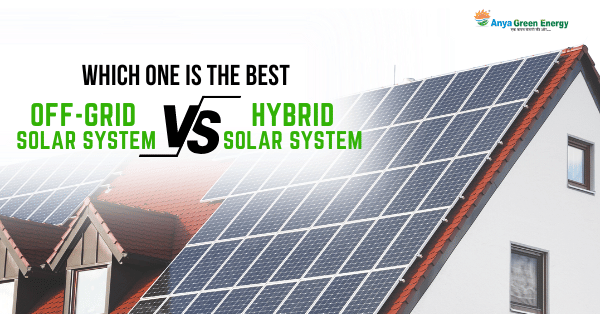HYBRID SOLAR SYSTEM FOR AVIATION INDUSTRY
In the pursuit of sustainable and eco-friendly solutions, the aviation industry has been soaring to new heights. Among the innovations taking center stage is the adoption of hybrid solar systems, a game-changer that marries aviation technology with renewable energy. This blog explores why the aviation industry is embracing hybrid solar systems and the crucial role they play in shaping a greener future.
Get Hybrid Solar System for Aviation Industry

Why choose hybrid solar system for aviation industry ?
As the aviation sector intensifies efforts to reduce its carbon footprint, the adoption of hybrid solar systems emerges as a strategic move. These systems integrate traditional aviation fuels with solar power, offering a sustainable energy solution that minimizes environmental impact. The aviation industry’s commitment to cleaner operations aligns seamlessly with the capabilities of hybrid solar systems, making them a natural choice for the future of flight.
Importance of hybrid solar system for aviation industry
Environmental Stewardship: Hybrid solar systems represent a crucial step towards sustainable aviation. By harnessing the power of the sun alongside conventional fuels, airlines can significantly reduce their carbon emissions. This commitment to environmental stewardship aligns with global efforts to combat climate change and promotes a cleaner, more responsible aviation industry.
Fuel Efficiency and Cost Savings: The aviation industry is notorious for its fuel consumption, both in terms of cost and environmental impact. Hybrid solar systems offer a solution by improving fuel efficiency. Solar power acts as a supplementary energy source, reducing the overall reliance on traditional fuels. This not only contributes to a greener environment but also results in substantial cost savings for airlines in the long run.
Energy Independence: Hybrid solar system for aviation industry provide a degree of energy independence for the industry. By tapping into solar energy, airlines can diversify their energy sources, reducing their vulnerability to fluctuations in traditional fuel prices. This increased resilience strengthens the industry’s ability to navigate economic uncertainties and ensures more stable operations.
Benefits of hybrid solar system for aviation industry
Reduced Carbon Footprint: One of the primary benefits of hybrid solar system for aviation industry is a significant reduction in carbon emissions. Solar power, being a clean and renewable energy source, offsets the environmental impact of traditional aviation fuels. This reduction in carbon footprint not only meets regulatory requirements but also positions airlines as responsible players in the global push for sustainability.
Enhanced Operational Efficiency: Hybrid solar systems contribute to improved operational efficiency by optimizing fuel consumption. The integration of solar power enables airlines to harness energy during ground operations, such as boarding and maintenance, reducing the need for auxiliary power units. This results in streamlined processes, shorter turnaround times, and increased overall efficiency in daily operations.
Long-Term Cost Savings: While the initial investment in hybrid solar systems may seem substantial, the long-term cost savings are considerable. As the aviation industry grapples with rising fuel costs, integrating solar power offers a stable and sustainable alternative. Over time, the reduced reliance on traditional fuels translates into significant cost savings, making hybrid solar systems a financially viable choice for forward-thinking airlines.
Technological Innovation and Market Leadership: Embracing hybrid solar system for aviation industry as pioneers in technological innovation. It not only demonstrates a commitment to sustainability but also enhances the industry’s image and competitiveness. As passengers become increasingly environmentally conscious, airlines that lead the way in adopting eco-friendly technologies are likely to gain a competitive edge in the market.
The aviation industry’s embrace of hybrid solar systems marks a transformative shift toward sustainability and responsible energy practices. With environmental concerns at the forefront of global conversations, the aviation sector is under pressure to adapt and innovate. Hybrid solar systems not only address these concerns but also offer tangible benefits such as reduced carbon emissions, enhanced operational efficiency, and long-term cost savings.
As we navigate the skies of the future, the integration of hybrid solar system for aviation industry represents a beacon of hope for a greener, more sustainable tomorrow. The synergy between cutting-edge aviation technology and the power of the sun propels us into an era where responsible flying is not just a goal but a reality. Hybrid solar systems are the wings that carry us toward a cleaner and more environmentally conscious aviation industry.


